|
Rural
Wisconsin Initiative Looks to Bridge Gap |
|
On Wednesday, 21 rural Wisconsin legislators and
I held a press conference to introduce seven pieces of
legislation aimed to benefit education, healthcare, broadband
infrastructure, and the economy in rural Wisconsin. The Rural
Wisconsin Initiative was assembled by Representative Romaine
Quinn (R-Rice Lake), Representative Ed Brooks (R-Reedsburg), and
Representative Travis Tranel (R-Cuba City) to address the needs
of rural Wisconsin.
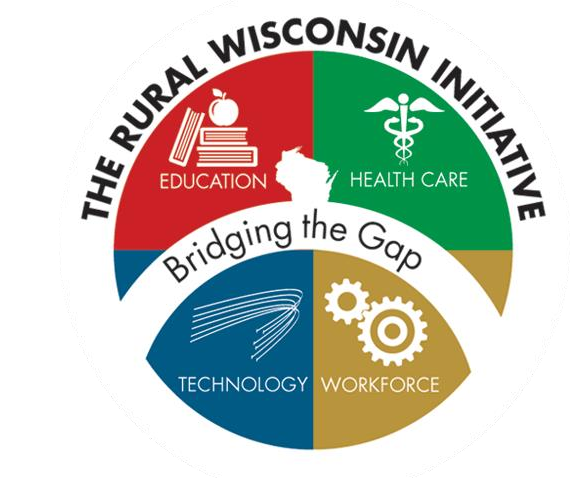
The Rural Wisconsin Initiative Agenda includes
the following seven legislative proposals:
· Increase funding for broadband expansion grants
· Attract teachers with incentive of student loan repayment
programs
· Establishment of S.T.E.M. (Science, Technology, Engineering,
and Math) curriculum grants
· Increase funding for apprenticeship grants
· Increase funding for apprenticeship tuition reimbursement
programs
· Attract out-of-state graduates ready to enter the workforce
· Expand funding for the Wisconsin Rural Physician Residency
Assistance Program
The goal of the Rural Wisconsin Initiative is to retain and
attract the younger generation to Wisconsin’s smaller, rural
communities. Rural Wisconsin is not only a great place to start
your career, but also an ideal location to raise a family.
Unfortunately, counties in Northern Wisconsin, as well as other
rural counties around the state, have experienced significant
population losses in recent decades as youth move to larger
cities. The stigma that rural Wisconsin does not offer a similar
quality of life that a “big city” does is an issue that we as
legislators must address.

Included in the Rural Wisconsin Initiative are Representatives
Joan Ballweg (R-Markesan), Kathy Bernier (R-Chippewa Falls),
Mary Czaja (R-Irma), James Edming (R-Glen Flora), Joel Kitchens
(R-Sturgeon Bay), Scott Krug (R-Nekoosa), Bob Kulp
(R-Stratford), Tom Larson (R-Colfax), Jeff Mursau (R-Crivitz),
John Murtha (R-Baldwin), Lee Nerison (R-Westby), Todd Novak
(R-Dodgeville), Warren Petryk (R-Eleva), Rob Swearingen
(R-Rhinelander), Keith Ripp (R-Lodi), John Spiros
(R-Marshfield), Gary Tauchen (R-Bonduel), and Nancy VanderMeer
(R-Tomah).
The Rural Wisconsin Initiative is striving for bipartisan
support on all seven proposals.
To follow the progress and provide input for the Rural Wisconsin
Initiative, please view our
website. The website provides information on the Rural
Wisconsin Agenda, participating legislators and press
releases. Lastly, the website provides access to the Rural
Wisconsin Initiative Facebook
Page and Twitter.
|
|
Meeting with Krystal
Westfahl |
|
On Thursday, January 14, Krystal Westfahl of the
Minocqua Area Chamber of Commerce made a visit to Madison to
discuss various bills currently circulating in the Legislature.
It was great to talk about the successful summer that local
businesses had in the Northwoods. Moving forward, tourism
industry advocates are lobbying for more dollars to be allocated
to market the state of Wisconsin as a destination. For
instance, Michigan, Illinois, and Minnesota all have larger
tourism budgets than Wisconsin. I believe that this will
continue to be a discussion for the next budget cycle.
Thank you again for visiting Krystal, keep up the
good work in Minocqua!
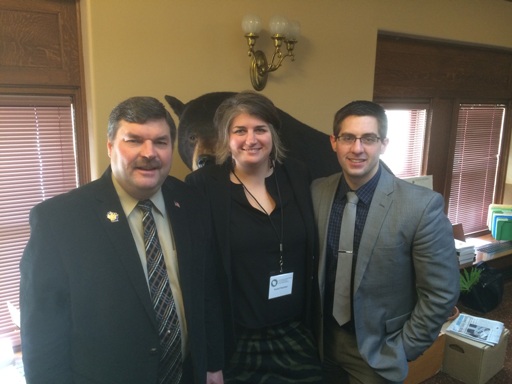
Rep.
Swearingen, Krystal Westfahl, and Senator Tiffany's staff - Tim
Duffy
|
|
Meeting with Ministry Healthcare in Rhinelander |
|
On Monday, January 11, Senator Tiffany and I met
with representatives from Ministry Healthcare in Rhinelander.
The meeting focused on telemedicine, a new practice implemented
by Ministry Healthcare facilities throughout the Northwoods.
This technology allows a patient in one region of
the state to be connected via telecommunications with a
physician elsewhere. Telemedicine allows patients to have
broader access to physicians located throughout the Ministry
healthcare system.
I want to thank Ministry Healthcare for
scheduling this meeting. It was great to learn about the
cutting edge technology in northern Wisconsin as well as other
healthcare related issues. Thank you!
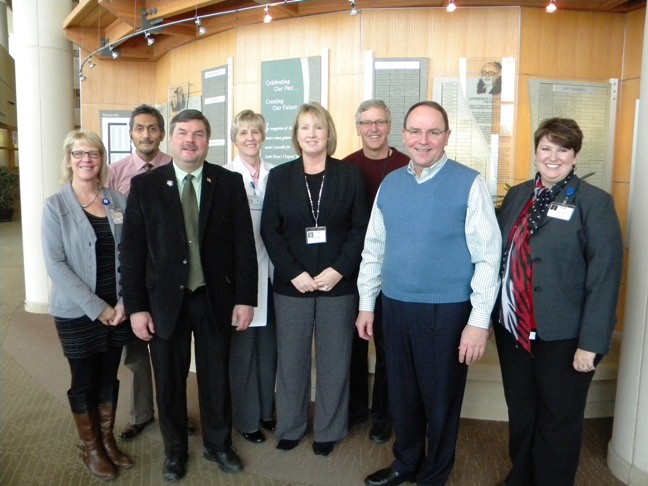
Representative Rob Swearingen and Senator Tiffany with Ministry
Healthcare staff.
|
|
H.O.P.E
Agenda Passes Assembly with Bipartisan Support |
|
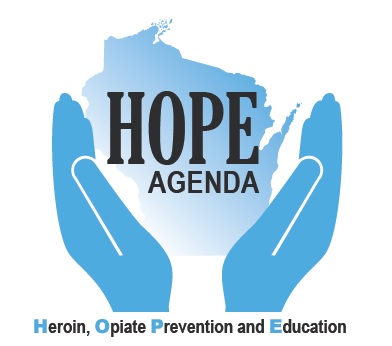
Last session Representative John Nygren
(R-Marinette) introduced seven bills known as the H.O.P.E
(Heroin, Opiate, Prevention and Education) Agenda to combat the
heroin epidemic in Wisconsin. All seven of these bills received
bi-partisan support and were signed into law by Governor
Walker. An eighth bill became law late last year. This session
Rep. Nygren continues to offer solutions to drug addiction and
treatment with four additional bills focused on prescription
drug abuse and addiction.
I added by name to the list of co-sponsors for
the four bills below when they were introduced this session.
Additionally, Assembly Bills 364-367 were debated and voted on
during a floor session on Tuesday January 12. I was proud to
vote in support of these proposals with my colleagues on both
sides of the aisle.
If you would like to review the bills below,
please use their respective links. You can also follow the
progress of the H.O.P.E agenda by visiting the H.O.P.E
website.
Assembly Bill 364:
Relating to: reporting, disclosure, and practitioner review
requirements under the prescription drug monitoring program;
providing an exemption from emergency rule procedures; and
granting rule-making authority. (FE)
Assembly Bill 365:
Relating to: duty of law enforcement officers to report to the
Prescription Drug Monitoring Program controlled-substance
violations, opioid-related drug overdoses or deaths, and reports
of stolen prescription drugs. (FE)
Assembly Bill 366:
Relating to: pain clinic certification and requirements,
granting rule-making authority, and providing a penalty. (FE)
Assembly Bill 367:
Relating to: reporting by treatment programs using methadone and
requiring review of prescription drug monitoring database.
|
|
State
Affairs and Government Operations Committee |
|
On Wednesday, January 13, the State Affairs and
Government Operations Committee held another executive session
and public hearing. The public hearing focused on Assembly
Bill 154, a bill that would allow the Town of La Pointe on
Madeline Island to enact stricter shore land zoning laws. My
colleague, Beth Meyers (D-Bayfield) introduced this proposal
early in the legislative session to specifically allow a town
that is located entirely on an island in Lake Superior to
exercise village powers.
I was very pleased that the bill received
bipartisan support in our committee as well as in the Senate. I
would like to thank members of the La Pointe town board and
zoning department for making the long haul to Madison to voice
their support for the legislation.
If you would like to review the other proposals
that were discussed during the public hearing and executive
session, please see the links below.
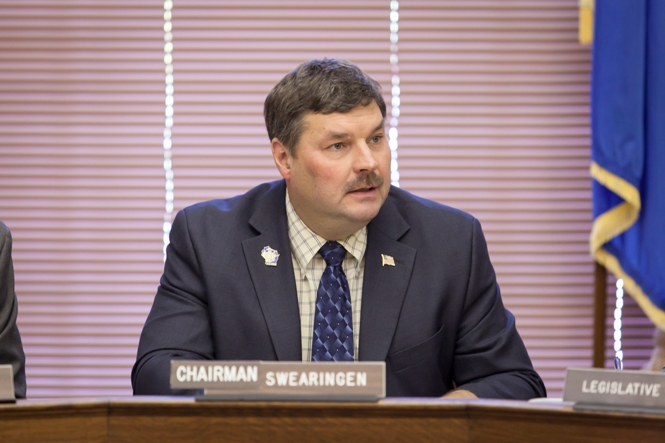
Rep.
Swearingen Addressing the Assembly State Affairs and Government
Operations Committee
Executive Session:
Assembly Bill 612:
Relating to: municipal quotas for retail intoxicating liquor
licenses.
Assembly Bill 624:
Relating to: retaining invoices for the sale of malt beverages
and intoxicating liquors and the local option for issuing liquor
licenses.
Public Hearing:
Assembly Bill 154: Relating to: the authority of a town and
of a county to zone shorelands in a town that is located
entirely on an island in Lake Superior and authorized to
exercise village powers.
Assembly Bill 616: Relating to: hauling restrictions for
special interest motor vehicles.
|
|
Assembly
Recognizes 9 Year-Old Hometown Hero |
|
On Tuesday, January 12, the Assembly recognized 9
year-old Jayden Jaramillo from Mount Pleasant as a Hometown
Hero. Jayden, a fourth grader, was on the school bus traveling
to school when his bus driver had an asthma attack and did not
have an inhaler. Jayden calmly and courageously used the
two-way radio to call for help, as well as directed emergency
services to the school bus. To hear more of Jayden's story
please click the image below.
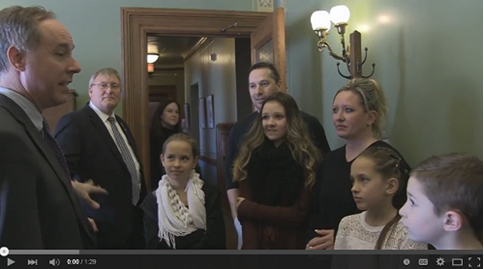
Speaker
Vos chatting with the Jaramillo Family.
|
|
Governor Walker Announces College Affordability Legislative
Package |
|

Madison – Governor Scott Walker announced his
college affordability legislative package focusing on making
higher education more affordable for Wisconsin working families
and students at Waukesha County Technical College. Today,
Governor Walker also joined faculty, staff, students, lawmakers,
and community members at the University of Wisconsin (UW)-La
Crosse to discuss the positive impact of the historic four-year
tuition freeze for the University of Wisconsin System.
“For the first time in state history, we froze tuition for four
years for our UW System students and that’s real savings for
them and their families,” Governor Walker said. “We want to
continue working together to make higher education more
accessible and more affordable for Wisconsin students and
families. Moving forward, we are focused on helping students to
afford the higher education path that best suits their career
goals, whether through a training program, technical college, or
a four-year program.”
According to the Legislative Fiscal Bureau, in the ten years
prior to our current historic four-year tuition freeze, tuition
increased an average of 8.1 percent across all UW System. Over
that same period, tuition had gone up 118.7 percent prior to the
freeze that Governor Walker and the Legislature enacted.
Compared to the average increases over the prior ten years,
across the UW System, students have saved $6,311 because of the
freeze. While savings vary by institution, the tuition freeze
meant average savings of $2,926 at UW Colleges and savings up to
$9,327 at UW-Madison.
“We know how daunting it can be to consider such a large
investment at a young age. Our college affordability legislation
will help students and families make informed decisions about
choosing the higher education path that is right for their
future dreams and for their budgets,” said Governor Walker. “We
also know that all of us fall on tough times, sometimes it’s an
unexpected and expensive car repair and sometimes it’s a medical
emergency, but it can have an impact on our finances, which is
especially tough for students paying for higher education. For
some students, that emergency car repair is the difference
between finishing their education or not. That’s why one of our
proposals creates a grant program aimed at helping those
students at UW System colleges and technical college to stay in
school when they face these unexpected financial hardships.”
The six legislative proposals in the college affordability
proposal are focused on making higher education more affordable,
reducing student debt, and making the cost of higher education
more transparent:
· Deducting All Student Loan Interest – authored by
Representative John Macco and Senator Howard Marklein, this
legislation would eliminate any cap on the tax deduction for
student loan interest, which would save student loan debt payers
$5.2 million annually when it is fully phased in. This tax
deduction would be the most generous of any state in the Midwest
with an income tax and benefit roughly 32,000 Wisconsin
taxpayers paying off student loans. This deduction also directly
benefits middle class Wisconsinites with an average benefit of
more than $200 annually for those making between $30,000 and
$70,000;
· Increasing Wisconsin Grants for Technical Colleges – authored
by Representative Dave Heaton and Senator Sheila Harsdorf, this
legislation would increase needs-based Wisconsin Grants by $1
million for technical college students in the biennium or
$500,000 annually. This would benefit over 1,000 students
throughout the state;
· Creating Grants for Students in Emergency Financial Need –
authored by Representative David Murphy and Senator Howard
Marklein, this legislation would provide $130,000 to UW System
colleges and $320,000 to technical colleges to provide emergency
grants to students. This approach has been credited with
increasing the likelihood a student finishes his or her degree
in these unfortunate situations by increasing student retention;
· Increasing Internships – authored by Representative David
Murphy and Senator Howard Marklein, these two pieces of
legislation would enhance internships, creating more pathways to
employment by funding two positions within the Office of Skills
Development at the Department of Workforce Development (DWD), as
well as additional UW System positions. These new positions
would work with employers and institutions throughout the state
to build and grow relationships between higher education
institutions and employers, so students can gain job skills,
which will assist in filling open positions and connecting our
graduating students to employers in Wisconsin;
· Helping Students and Families to Make Informed Decisions –
authored by Representative David Murphy and Senator Howard
Marklein, this legislation would require all state institutions
of higher education to provide financial literacy to their
students within the first semester of their instruction. It
would also require all institutions of higher education offering
an associate’s degree or higher to annually mail cost, loan, and
other financial information to students. This is modeled after
an Indiana law that has been credited with reducing the amount
of loans taken out by students.
Prior to these proposals, Governor Walker and the Legislature
have already worked to make higher education more affordable for
Wisconsinites. They have created a scholarship program for high
school students who lead their classes in technical education
courses, restored the Wisconsin GI Bill for veterans and
expanded it to those with five years of residency, as well as
increased needs-based grants for technical college students by
$2 million in the 2013-14 school year and $1 million for
independent colleges. To make it easier for students to complete
their degrees, Governor Walker included in the 2013-15 biennial
budget a requirement that UW System and Technical College
schools have at least 30 core credits that can transfer between
institutions, and additionally created the UW System Flexible
Degree Program, which offers competency-based learning at a
flexible schedule. Governor Walker and the Legislature also
indexed the Higher Education Tuition Tax Deduction in the
2013-15 budget. This is benefiting tens of thousands of
Wisconsin residents with the costs of higher education.
###
- See more at: http://walker.wi.gov/newsroom/press-release/working-wisconsin-governor-scott-walker-announces-college-affordability#sthash.5tVz2Kob.dpuf
|
|
DNR
News |
|

Anglers urged to use extreme caution as ice conditions vary
from location to location
Even with the colder temperatures, DNR fisheries biologists and
conservation wardens are recommending extreme caution on state
waters. On many lakes, unseasonable weather has created freeze
and thaw cycles resulting in ice that may be several inches
thick in one spot, but thin or structurally unsound in other
spots.
"Always err on the side of caution and keep a close eye on the
ever changing ice conditions," Heussner said. "Do not assume
consistent ice throughout the waterbody and be aware that
shifting ice can create open water situations."
Ice safety picks, which can be made
at home or
purchased at many local sporting goods stores, should be carried
at all times. A boat cushion or throw with a rope attached
offers another measure of safety and doubles nicely as a knee
pad when setting up or catching a fish.
DNR does not monitor local ice conditions or the thickness of
the ice and encourages anglers and others who will be out on the
ice to check in with local bait shops, fishing clubs and
resorts. These groups serve winter anglers every day and often
have the most up-to-date information on how thick the ice is on
local lakes and rivers, as well as areas that are especially
dangerous.
Other ice safety tips include:
-
Dress warm and wear layers of clothing.
-
Make sure someone knows where you are going
and when you expect to return; carry a cell phone.
-
Don't travel on ice in areas you are not
familiar with and use extreme caution when traveling at
night or during reduced visibility.
-
Avoid inlets, outlets or narrows of waterways
as they may have current that can thin the ice.
-
In additional to carrying ice claws or picks,
wear or have available a lifejacket or a floatation garment
that provides buoyancy.
To learn more, visit
dnr.wi.gov and
search: ice
safety.
Baiting and feeding ban in Oneida, Forest and
Vilas counties will begin Jan. 11
By Central Office January 7, 2016
Contact(s): Jeremy Holtz, DNR wildlife biologist, 715-365-8999;
Tami Ryan, DNR wildlife health section chief, 608-266-3143
RHINELANDER, Wis. -- A ban on baiting for hunting and feeding
deer for recreational viewing or other purposes in Oneida,
Forest and Vilas counties will take effect Jan. 11, 2016 due to
the detection of chronic wasting disease in captive white-tailed
deer on private land in Oneida County reported in December.
Forest and Vilas counties are within a 10-mile radius of the
Oneida County property on which a CWD-positive deer was found.
State law requires that the Wisconsin Department of Natural
Resources enact a ban on feeding and baiting of deer in counties
or portions of counties within a 10-mile radius of a captive or
free-roaming domestic or wild animal that tests positive for CWD
or tuberculosis. As of Jan. 11, baiting and feeding of deer will
be prohibited in 41 Wisconsin counties.
Individuals may still feed birds and small mammals, provided the
feeding devices are within 50 yards of a human dwelling and at a
sufficient height or design to prevent access by deer.
For more information regarding baiting and feeding regulations
and CWD in Wisconsin, visit the department's website,
dnr.wi.gov, and search keywords "bait" and "CWD" respectively.
Check out Free Fishing Weekend fun and events
Residents and nonresidents are welcome to fish anywhere in
Wisconsin without a license or trout stamp during the upcoming
Free Fishing Weekend on January 16 and 17. The event covers all
inland waters and Wisconsin's side of the Great Lakes and
Mississippi River. Other fishing
rules apply, such
as limits on the number and size of fish you can keep and any seasons when
you must release certain fish species.
To learn more, visit
dnr.wi.gov and
search "Free
Fishing Weekend." For
those without equipment, DNR offers ice fishing tip-ups and
jigging rods at many state parks and DNR offices.
Ice augers are not available. Theresa Stabo, DNR fisheries
outreach coordinator, suggests claiming an abandoned hole, or
better yet - making friends with the anglers at the nearest ice
fishing shanty and asking them to drill a hole or lend an auger.
Check out the list
of loaner sites to
find out where tackle loans are available.
Get a license
For novices who would like to continue the thrill of "hard
water" fishing after Free Fishing Weekend, "first-time
buyer"resident licenses are available for just $5. Fishing
licenses can be purchased through the Online
Licensing Center on
the DNR website, at all authorized
license agents, and at DNR
Service Centers (Hours
for service centers vary; check the DNR website for service
center days and hours of operation; DNR Service Centers are not
open on Saturdays).
For more information on ice fishing around the state contact:
Ryan Koenigs, DNR fisheries biologist in Oshkosh, 920-303-5450, Ryan.Koenigs@Wisconsin.gov ;
Joseph Gerbyshak, DNR fisheries biologist in Eau Claire,
715-839-2877,Joseph.Gerbyshak@Wisconsin.gov ;
Jennifer Bergman, DNR fisheries biologist in Wisconsin Rapids,
715-421-7852,Jennifer.Bergman@Wisconsin.gov ;
John Kubisiak, DNR fisheries biologist in Rhinelander,
715-365-8919,Johnf1.Kubisiak@wisconsin.gov . |
|
Rhinelander
School District Referendum Update |
|
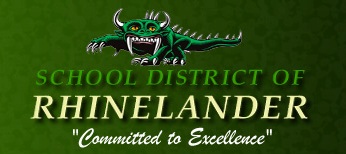
The Rhinelander School District will hold a
binding referendum on February 16, 2016. In an effort to keep
the residents and taxpayers of the Rhinelander School District
informed, please follow the link below for more information.
The website will update periodically to include the newest
information. The link will help inform residents on all aspects
of the referendum this spring.
Rhinelander School District Referendum
Recently the School District of Rhinelander
released dates for community presentations to inform the public
about the upcoming referendum. Please see the dates below.
- January 18th, 5:00 p.m. at the James Williams Middle School
Library
- January 21st, 2:00 p.m. at Northern Coffee Haus
- January 22nd, 10:00 a.m. at Pelican Elementary School
- February 2nd, 2:00 p.m. at Northern Coffee Haus
- February 10th, 10:00 a.m. at the YMCA of the Northwoods
(Multi-Purpose Room)
A full listing of community presentations can be found on the School
District of Rhinelander website.
|
|
Upcoming
Community Events |
|
Please click the following links for upcoming community
events!
Indoor Farmers Market At The YMCA: January
16, Rhinelander
Saturday Double Feature: January
16, Three Lakes
AMSOIL World
Championships Snowmobile Derby: January
14-17, Eagle River
"Free-for-Wall", a community exhibition opens!: January
15-16 & 21-22, Rhinelander
Three Lakes Tavern League Poker Run: January
15-16, Three Lakes
Free Fishing Weekend: January
16-17, Wisconsin
Minocqua Winter Farmers Market: October
16, Minocqua
Minocqua Forest Riders Spaghetti Dinner: January
17, Minocqua
Boulder Junction Snowmobile Club Breakfast: January
17, Boulder Junction
Bob Metropulos
Gallery Open House & Reception at the Campanile Center for the
Arts: January 17,
Boulder Junction
LOLA Snowflake Gala: January
19, Land O' Lakes
Women's Club Chili Luncheon: January
20, Three Lakes
30th Annual Great
Northern Ice Fishing Tournament: January
23, Lac Vieux Desert |
|
.jpg)







